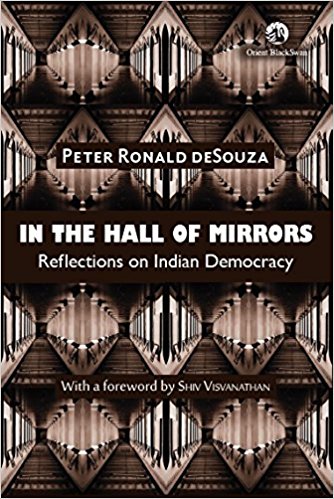At a time when trolls act as gate-keepers to power and a motley group of hecklers, vigilantes, and vandals define what is permissible to speak, eat, dress, and consociate, definitions and redefinitions of democracy, even if qualified as Indian democracy, are required. The political scientist, Peter DeSouza’s collection of essays (from various pre-published sources) in this volume engages with these difficult issues whose elusive understanding is a reflection of the complex embedding of democracy into India’s social fabric and cultural ethos. DeSouza’s collection of essays interrogates such socio-cultural embedding and in doing so he does not deploy a relativistic, Indian democracy or Indian modernity as an answer to these difficult questions and trends. Instead, he teases out several layers of analyses that draw on different issues, events, perspectives, agents and agencies which have marked and or have played out on the template of Indian democracy.
Eschewing high theoretical analyses that fit complex and contradictory events into received and fashionable academic paradigms, DeSouza provides an eclectic approach that draws on ‘multiple lenses’ (p. 241) and highlights how ‘a theory of the Indian democratic system must be built from everyday events, which are then subjected to a critical analysis of why they occur’ ( p. 265). The results are evident in the wide range of events—from Nirbhaya’s death to Supreme Court judgements—that he draws on to comment and to understand the contours and conundrums of democracy in India. The result of these nuanced perspectives and commentaries endorse his overarching framework that India’s democracy must be seen as it is refracted through a ‘hall of mirrors’ where the ideals of democracy—liberty, equality, freedom of speech and rights—are challenged by extant forms of humiliation, discrimination, denial of freedom, and conditions of subordination.

